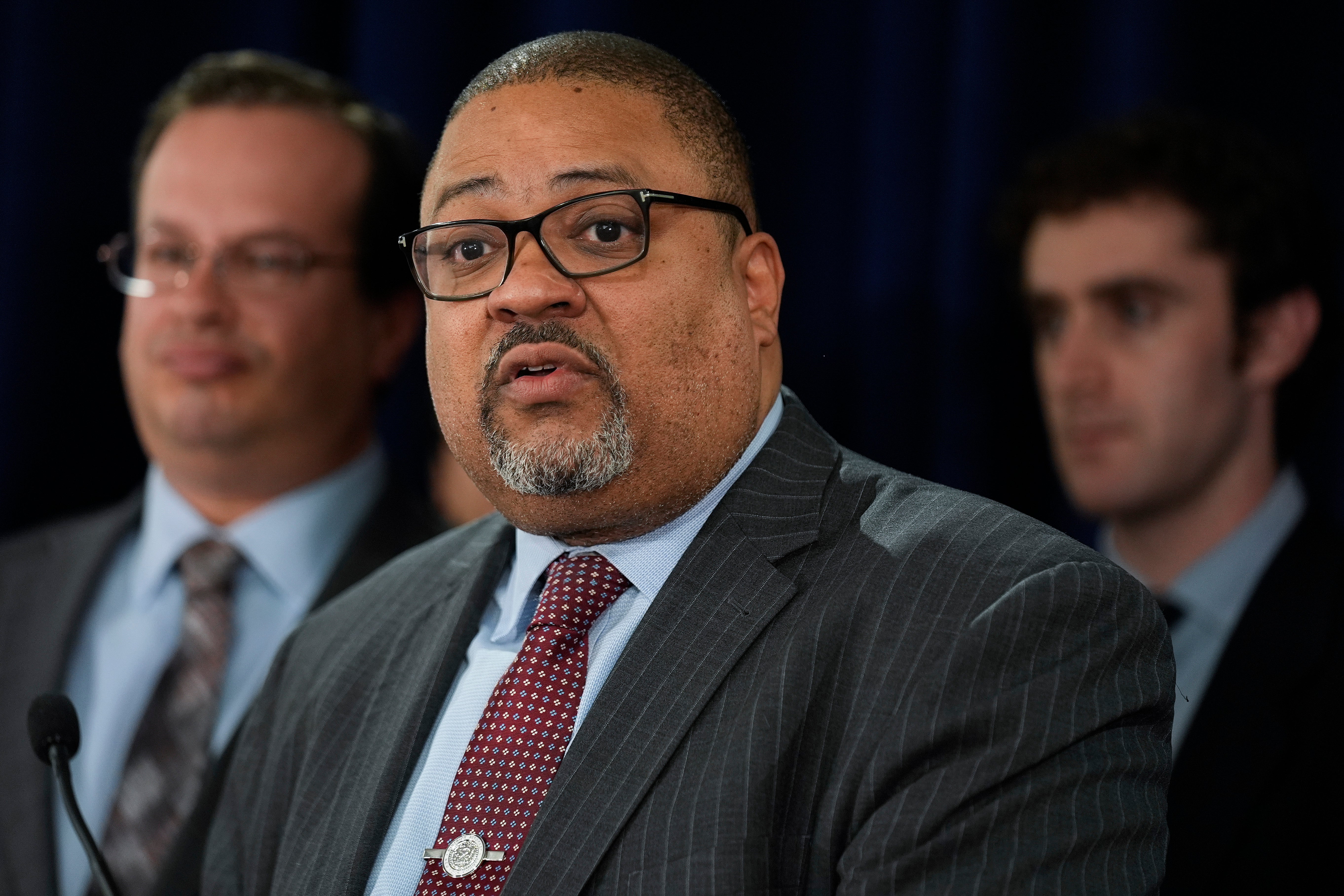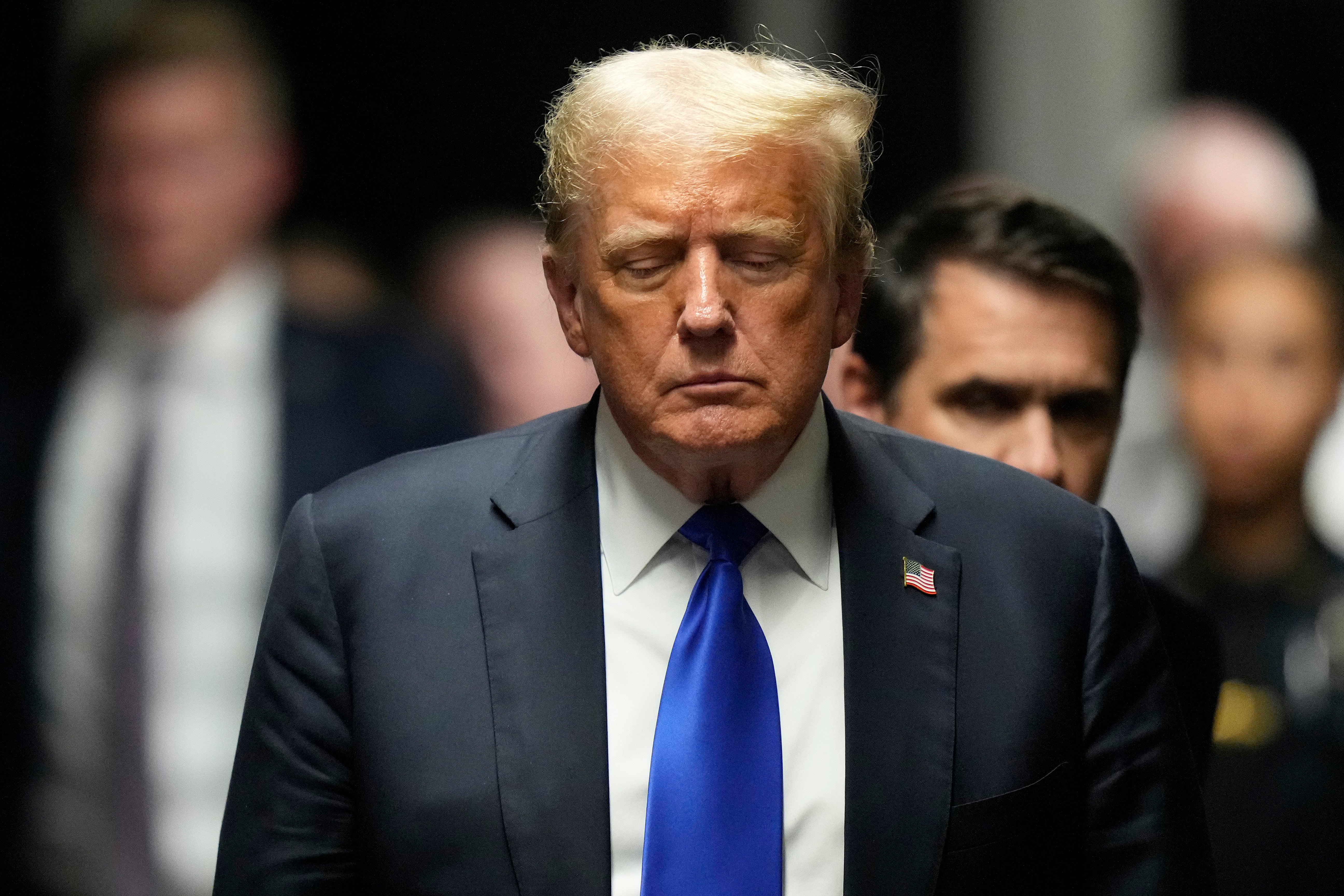When is Donald Trump’s sentencing on criminal charges in his hush money trial?
The former president pushed for delays after the Supreme Court’s ‘immunity’ decision
Your support helps us to tell the story
From reproductive rights to climate change to Big Tech, The Independent is on the ground when the story is developing. Whether it's investigating the financials of Elon Musk's pro-Trump PAC or producing our latest documentary, 'The A Word', which shines a light on the American women fighting for reproductive rights, we know how important it is to parse out the facts from the messaging.
At such a critical moment in US history, we need reporters on the ground. Your donation allows us to keep sending journalists to speak to both sides of the story.
The Independent is trusted by Americans across the entire political spectrum. And unlike many other quality news outlets, we choose not to lock Americans out of our reporting and analysis with paywalls. We believe quality journalism should be available to everyone, paid for by those who can afford it.
Your support makes all the difference.Donald Trump was supposed to be sitting in a criminal courtroom in Manhattan on July 11, at the table where he spent more than 20 days hearing evidence and witness testimony against him during his hush money trial.
But instead, the former president is back on the campaign trail, after his attorneys convinced the judge presiding over the case to delay his sentencing to September 18.
On May 30, a jury convicted Trump on all 34 felony counts of falsifying business records in connection with a scheme to silence adult film star Stormy Daniels, whose story about having sex with Trump threatened to derail his 2016 presidential campaign.
But on July 1, the Supreme Court handed down a ruling affirming that presidents have “absolute” immunity from criminal prosecution for “official” acts in office, prompting Trump’s attorneys to scramble to have the hush money verdict thrown out and his charges dismissed in other criminal cases against him.
The New York challenge is a long shot, but Trump’s legal strategy is designed around delay tactics. Here, he has successfully delayed a sentencing date until after the Republican National Convention, and within six weeks before Election Day.
In a letter to Justice Juan Merchan on July 2, prosecutors with the office of Manhattan District Attorney Alvin Bragg said Trump’s arguments are “without merit” but that they did not oppose his request to push back the sentencing date as he files his legal arguments.
Judge Merchan announced on July 2 he will render a decision on Trump’s “immunity” arguments on September 6 and postponed the sentencing date to September 18 — “if such is still necessary”.

A notice from Trump’s attorneys arrived within hours of the Supreme Court’s ruling, which partially shields Trump and any other presidents from criminal prosecution for actions considered “official” duties while in office, and the presumption of “immunity” for acts in the “outer perimeter” of those “official” duties.
That includes blocking “official” actions from being used as evidence, according to the Supreme Court’s conservative majority.
Speaking after the Supreme Court’s decision, Trump claimed the ruling “should end all of Crooked Joe Biden’s Witch Hunts against me,” including “the New York Hoaxes” — meaning his hush money case, the civil fraud judgment that has him on the hook for nearly half a billion dollars and a jury’s verdict in a federal defamation trial.
Trump’s attorneys argued that witness testimony during his hush money trial about events in the Oval Office, Trump’s social media posts and phone records during his term, and an Office of Government Ethics form about payments to his estranged former personal attorney Michael Cohen should not have been admitted into evidence, based on the Supreme Court’s new “presidential immunity doctrine.”

They argued that the hush money case “should never have been put before a jury” following the Supreme Court’s ruling and requested a deadline of July 10 to file a motion based on the high court’s decision.
“Under Trump, this official-acts evidence should never have been put before the jury,” they wrote in their July 1 letter.
“After further briefing on these issues beginning on July 10 2024, it will be manifest that the trial result cannot stand,” they added.
Judge Merchan will ultimately set the sentence.
The justice will likely pull from guidance from Trump’s interview with a New York probation officer in June when making his decision.
Trump could face several years in jail or alternatively probation, community service, a hefty fine or some combination of those terms.
